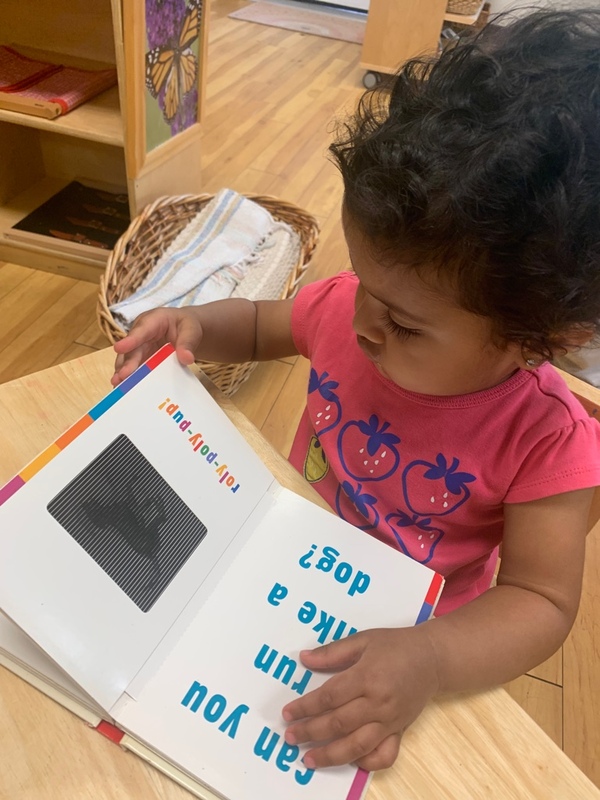(858) 759-0631
Dr. Maria Montessori, the Italian educator and scientist who, more than 100 years ago, developed the system of education that bears her name, knew that from birth to age 3, your child’s brain develops more rapidly than at any other time. More learning takes place than at any other stage of development.
Recognizing the importance of these formative years, the Montessori approach to infants and toddlers supports starting earlier than that.
In a Montessori environment, your infant or toddler will be with teachers—loving, nurturing, and rigorously trained in child development—who create peaceful, supportive, and safe environments for our youngest children. In these spaces, a child’s natural passion for wonder, curiosity, exploration, independence, and discovery comes alive.
During the first three years of life, your child develops more rapidly than at any other time. During this phase, your child absorbs large amounts of information from the environment through observation and experiences. These are the years that lay the foundation for later learning—and the stronger the foundation, the more the child can build upon it.
Montessori Infant & Toddler programs offer a curriculum that emerges from each child’s unique skills and interests. Based on daily observations, teachers introduce new materials and activities that pique curiosity and stimulate learning. Learning objectives for your child at this age include developing skills such as language, concentration, problem-solving, visual discrimination, and physical coordination.
The routines of everyday living are the foundation of Montessori Infant & Toddler programs. Activities promote independence, order, coordination, and concentration, as well as support social, emotional, physical, and cognitive development.
These learning activities include:
- Self-care: washing, dressing, toileting, and eating, according to each child’s capacity.
- Care of the environment: cleaning, food preparation, and food service; plant care and animal care.
- Large-motor activities (indoors and out): walking, climbing, running, jumping, balancing, climbing steps, and more.
- Fine motor skills: reaching, grasping, picking up objects, transferring objects, using tools and utensils, and doing artwork.
- Language: naming objects, describing actions and intentions, discussing pictures, conversation, music, and singing.
- Social skills: developing manners through peer interactions, teachers, and adult-led small group games.

